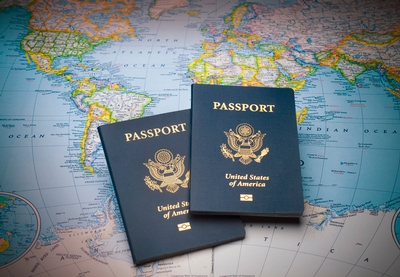Ready for Spring Break?
Related Attorney: Timothy E. Dinan
April 3, 2024 Spring break is a time for relaxation and adventure, especially when planned as a family getaway. While it’s exciting to think about the destination, activities, and the joy of spending time with loved ones, it’s equally important to consider the legal aspects that can ensure a smooth and hassle-free experience. Here are some legal considerations to keep in mind before you set off on your spring break adventure with your family:
Spring break is a time for relaxation and adventure, especially when planned as a family getaway. While it’s exciting to think about the destination, activities, and the joy of spending time with loved ones, it’s equally important to consider the legal aspects that can ensure a smooth and hassle-free experience. Here are some legal considerations to keep in mind before you set off on your spring break adventure with your family:- Travel Documentation - Ensure that all family members have valid travel documents. If you’re traveling internationally, check passport expiration dates—many countries require that passports be valid for at least six months beyond the date of entry. For domestic travel, review the requirements for state IDs or driver’s licenses, especially with the Real ID Act coming into effect, which mandates stricter identification standards for air travel within the United States.
- Health and Travel Insurance - Verify your health insurance coverage to understand what is covered, especially if you are traveling abroad. Consider purchasing travel insurance that includes medical coverage. Travel insurance can also cover trip cancellations, delays, and lost luggage, which can save you from significant unexpected expenses.
- Parental Consent Forms - If one parent is traveling alone with the children or if children are traveling with relatives or friends, it’s advisable to have a notarized letter of consent from the other parent(s) or legal guardians. This document should state that the children have permission to travel and should include contact information, travel dates, and destinations.
- Local Laws and Customs - Familiarize yourself with the local laws and customs of your destination, especially if traveling internationally. Something as simple as a public behavior can be subject to fines or more severe penalties in another country. Also, be aware of the legal drinking age and the laws regarding alcohol consumption in public spaces if your spring break includes adult family members who plan to imbibe.
- Rental Agreements and Accommodations- Carefully review any rental agreements for vacation homes or vehicles. Understand your liabilities, any insurance that is included or required, and the cancellation policy. For hotels or resorts, check the policies regarding cancellations, deposits, and any additional fees.
- Emergency Preparedness - Have a plan in case of emergencies. Know the location of the nearest embassy or consulate if traveling abroad, and the nearest hospital or medical facility. Keep a list of emergency contacts, including family members not traveling with you, and consider registering your trip with the State Department through the Smart Traveler Enrollment Program (STEP) for additional support while abroad.
Questions? Contact Tim Dinan at tdinan@lcrlaw.com, or (973) 729-1880.
See our previous blog post here.


















